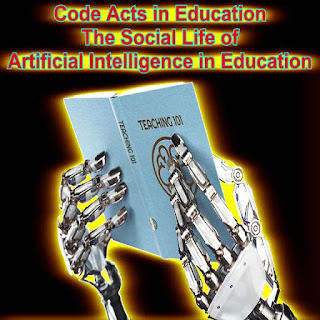As we have seen numerous times, there are software packages out there that claim the ability to read our emotions. Folks are lined up around the block to use this stuff, but of course one of the applications is supposed to be reading student emotions and therefor better at "personalizing" a lesson.
Does this sound as if the ed tech world is overpromising stuff that it can't actually deliver? Well, now you have a chance to find out. Some scientists have created a website where you can practice having your own face read by software.
The team involved says the point is to raise awareness. People are still stuck on all the huge problems with facial recognition, but meanwhile, we're being surrounded by software that doesn't just recognize your face (maybe) but also reads it (kind of). Here's the project lead, Dr. Alexa Haggerty, from the awesomely-named University of Cambridge Leverhulme Centre for the Future of Intelligence and the Centre for the Study of Existential Risk:
But Hagerty said many people were not aware how common emotion recognition systems were, noting they were employed in situations ranging from job hiring, to customer insight work, airport CONTINUE READING: CURMUDGUCATION: Can You Fool An AI Emotion Reader
























